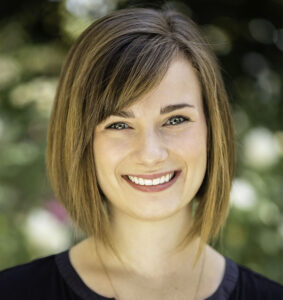There and Back Again: Power, Difference, and Faithful Living
Growing up and through his young adult years, Fabián Sandoval struggled with two different ways of carrying himself in the world: he could either be altruistic without concern for his own needs, or pursue money and power as a way of protecting himself from the poverty of his childhood. It was only through the painstaking journey of living both realities that Fabián discovered a third way of understanding his calling.
As a child, Fabián felt that his parents were powerless to help him and his brothers feel secure. This was primarily due to being poor and an immigrant in America. “Growing up as Mexican-American, son of immigrants in low income government housing,” Fabian reflects, “it was clear to me that people from my demographic had very little power.” What power Fabian’s parents, Miguel and Lupe, did have they used to nurture the common good of their family. As devout Catholics coming from a culture with a high value on the collective, Fabian’s mental model of success looked like faithfully laying down one’s own desires for the sake of the family.
This collective view of success struck a dissonant cord within Fabián as he immersed himself in the dominant American view of success. Years later, after graduating from college in Claremont, California, Fabián went on to study law in Northern California. Fabián recalls that his decision to go to law school was a reactionary response to his childhood experience: “Here we were, four of five of us brothers sharing one room. Outside, in our neighborhood, there was danger all around. And it was [lack of] money that kept us in that room.” At the time, it seemed the only way forward was to find the most powerful profession and become wildly successful at it. “I felt powerless and scared. And so my decision to go to law school was primarily to have power through acquiring money.”
Law school was not the “way out” that Fabián had hoped or imagined. Fabián recalls that students of color in law school felt an incredible pressure to “do right by their community.” “It was a stress that non-minority students did not experience,” Fabian explained. This pressure only added to Fabian’s inherited view of work as first and foremost about caring for the common good, and that he should put his own needs and desires second. Coming from an environment where his well-being was at risk daily—whether that was gang violence in his neighborhood or the real possibility of not enough money to put food on the table—Fabian firmly resisted the notion that he shouldn’t care for himself. Pursuing money, power, and influence was the only visible alternative to the kind of family-focused altruism that was constantly asked of him.
The allure of power and the rejection of his familial roots left Fabian feeling hard-hearted and calloused during his years at law school. At the same time, Fabián felt disillusioned by the lawyers who maintained 80-hour workweeks at the expense of their personal and relational well-being. Feeling a dissonance with his own hard-heartedness and his disgust with the work-obsessed American culture gave Fabian newfound appreciation for his family’s communal culture and values. It was the familiar nudging of the Spirit that led Fabian to re-examine his posture towards his faith, work, culture, and family.
It became apparent to Fabián that he was seeking to control his life, to be the master of his own security and success, when all that God was asking of him was that he be faithful with what he had been given. Through this toilsome journey, Fabian discovered a third way of carrying himself in the world—a way of responding to God’s call upon his life. This way included an altruistic concern for others as well as respecting his own needs, while trusting God’s provision for both.
It was an unconventional journey of discerning his vocational calling through small, Spirit-led steps. “My new vision of helping others and being true to myself means I don’t have to be Mother Teresa,” or the workaholic lawyer, Fabián says. Instead, it’s about adapting a posture of faithfulness in his daily life.
Seven years out of law school, Fabián now works at a small tech start-up in Pasadena, California. Fabián started at the bottom rung of the organizational chart, answering phones in the customer care department. But through God’s divine sense of humor, Fabian now not only uses his law degree as a contract analyst, he also holds a position of power where he interacts with company executives daily. “I feel extremely blessed to have gone from a place of desiring to wield power to now having some influence and wanting to use it to empower people.” Through his faithful discernment process, Fabian is now able to respond to God’s call. “I am now more weary of not living out my values than I am of not living in comfort.”
 Meggie Anderson-Sandoval is a Fuller Seminary graduate (MDiv, ’16) with a passion for Christian ethics. In any given context, Meggie feels called to put into practice Kingdom-oriented ethics in both word and deed. Meggie finds fulfillment from working alongside others to bring about justice, redemption, and holistic transformation. Most recently, Meggie has been involved in community organizing efforts across Los Angeles County. She also helped develop a new project at Fuller that emphasizes the sacred acts of hospitality and storytelling (see more about the Story Table here). Though she hails from Colorado, Meggie currently resides in Altadena, California and considers Los Angeles home.
Meggie Anderson-Sandoval is a Fuller Seminary graduate (MDiv, ’16) with a passion for Christian ethics. In any given context, Meggie feels called to put into practice Kingdom-oriented ethics in both word and deed. Meggie finds fulfillment from working alongside others to bring about justice, redemption, and holistic transformation. Most recently, Meggie has been involved in community organizing efforts across Los Angeles County. She also helped develop a new project at Fuller that emphasizes the sacred acts of hospitality and storytelling (see more about the Story Table here). Though she hails from Colorado, Meggie currently resides in Altadena, California and considers Los Angeles home.



